第66章
It would serve, he said to himself, as a symbolic language, to keephim in communion with nature. Neither the sickly and thought-wornDoctor Giacomo Rappaccini, it is true, nor his brilliant daughter,were now visible; so that Giovanni could not determine how much of thesingularity which he attributed to both, was due to their ownqualities, and how much to his wonder-working fancy. But he wasinclined to take a most rational view of the whole matter.
In the course of the day, he paid his respects to Signor PietroBaglioni, Professor of Medicine in the University, a physician ofeminent repute, to whom Giovanni had brought a letter of introduction.
The Professor was an elderly personage, apparently of genial nature,and habits that might almost be called jovial; he kept the young manto dinner, and made himself very agreeable by the freedom andliveliness of his conversation, especially when warmed by a flask ortwo of Tuscan wine. Giovanni, conceiving that men of science,inhabitants of the same city, must needs be on familiar terms with oneanother, took an opportunity to mention the name of Doctor Rappaccini.
But the Professor did not respond with so much cordiality as he hadanticipated.
"Ill would it become a teacher of the divine art of medicine," saidProfessor Pietro Baglioni, in answer to a question of Giovanni, "towithhold due and well-considered praise of a physician so eminentlyskilled as Rappaccini. But, on the other hand, I should answer itbut scantily to my conscience, were I to permit a worthy youth likeyourself, Signor Giovanni, the son of an ancient friend, to imbibeerroneous ideas respecting a man who might hereafter chance to holdyour life and death in his hands. The truth is, our worshipfulDoctor Rappaccini has as much science as any member of the faculty-with perhaps one single exception- in Padua, or all Italy. But thereare certain grave objections to his professional character.""And what are they?" asked the young man.
"Has my friend Giovanni any disease of body or heart, that he is soinquisitive about physicians?" said the Professor, with a smile.
"But as for Rappaccini, it is said of him- and I, who know the manwell, can answer for its truth- that he cares infinitely more forscience than for mankind. His patients are interesting to him onlyas subjects for some new experiment. He would sacrifice human life,his own among the rest, or whatever else was dearest to him, for thesake of adding so much as a grain of mustard-seed to the great heap ofhis accumulated knowledge.""Methinks he is an awful man, indeed," remarked Guasconti, mentallyrecalling the cold and purely intellectual aspect of Rappaccini.
"And yet, worshipful Professor, is it not a noble spirit? Are theremany men capable of so spiritual a love of science?""God forbid," answered the Professor, somewhat testily- "atleast, unless they take sounder views of the healing art than thoseadopted by Rappaccini. It is his theory, that all medicinal virtuesare comprised within those substances which we term vegetable poisons.
These he cultivates with his own hands, and is said even to haveproduced new varieties of poison, more horribly deleterious thanNature, without the assistance of this learned person, would ever haveplagued the world with. That the Signor Doctor does less mischief thanmight be expected, with such dangerous substances, is undeniable.
Now and then, it must be owned, he has effected-or seemed to effect- amarvellous cure. But, to tell you my private mind, Signor Giovanni, heshould receive little credit for such instances of success- they beingprobably the work of chance- but should be held strictly accountablefor his failures, which may justly be considered his own work."The youth might have taken Baglioni's opinions with many grainsof allowance, had he known that there was a professional warfare oflong continuance between him and Doctor Rappaccini, in which thelatter was generally thought to have gained the advantage. If thereader be inclined to judge for himself, we refer him to certainblack-letter tracts on both sides, preserved in the medical departmentof the University of Padua.
"I know not, most learned Professor," returned Giovanni, aftermusing on what had been said of Rappaccini's exclusive zeal forscience- "I know not how dearly this physician may love his art; butsurely there is one object more dear to him. He has a daughter.""Aha!" cried the Professor with a laugh. "So now our friendGiovanni's secret is out. You have heard of this daughter, whom allthe young men in Padua are wild about, though not half a dozen haveever had the good hap to see her face. I know little of the SignoraBeatrice, save that Rappaccini is said to have instructed her deeplyin his science, and that, young and beautiful as fame reports her, sheis already qualified to fill a professor's chair. Perchance her fatherdestines her for mine! Other absurd rumors there be, not worth talkingabout, or listening to. So now, Signor Giovanni, drink off yourglass of Lacryma."Guasconti returned to his lodgings somewhat heated with the wine hehad quaffed, and which caused his brain to swim with strange fantasiesin reference to Doctor Rappaccini and the beautiful Beatrice. On hisway, happening to pass by a florist's, he bought a fresh bouquet offlowers.